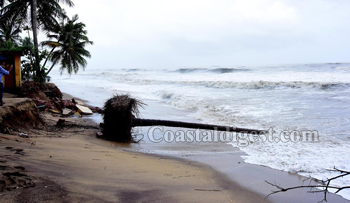London, Jul 4: Greenhouse gas emissions have caused the Indo-Pacific Warm Pool - the largest area of warm water in the world - to get hotter and increase in size, scientists have warned.
 The pool stretches about 14,484 km along the equator and 2,414 km from north to south. It is an area of ocean with an average temperature of more than 28 degrees Celsius and can reach up to 30 degrees in places.
The pool stretches about 14,484 km along the equator and 2,414 km from north to south. It is an area of ocean with an average temperature of more than 28 degrees Celsius and can reach up to 30 degrees in places.
Researchers, including those from Commonwealth Scientific and Industrial Research Organisation (CSIRO) in Australia and Ocean University of China, also found that if the Indian Ocean section of the warm pool expands more than the Pacific part, it leads to an increase in rainfall in the western Indian Ocean.
But if this is reversed, it results in a decrease in rainfall over east Asia.
As water warms, it expands and the region has experienced the "world's highest rates of sea-level rise" in recent years.
Five small islands in the South Pacific recently disappeared and six others were partially destroyed by the rising tide.
Since the warmth of the water can drive moisture and hot air high into the atmosphere, it has a significant effect on the weather experienced by countries in the region, increasing the risk of severe cyclones.
Only 12 to 18 per cent of the warming had occurred naturally with the rest caused by greenhouse gas emissions, Seung-Ki Min, of Pohang University in South Korea, was quoted as saying by 'The Independent'.
The size of the pool has been shown to oscillate in 20-year cycles, getting bigger and warmer then contracting and cooling.
However the researchers said overall it had warmed by 0.3 degrees Celsius and increased in size by about a third over the last 60 years.
"The IPWP (Indo-Pacific Warm Pool) is Earth's largest region of warm sea surface temperatures, has the highest rainfall, and is fundamental to global atmospheric circulation and hydrological cycle," the researchers wrote in the journal Science Advances.
"The region has also experienced the world's highest rates of sea-level rise in recent decades, indicating large increases in ocean heat content and leading to substantial impacts on small island states in the region," they said.





Comments
Add new comment